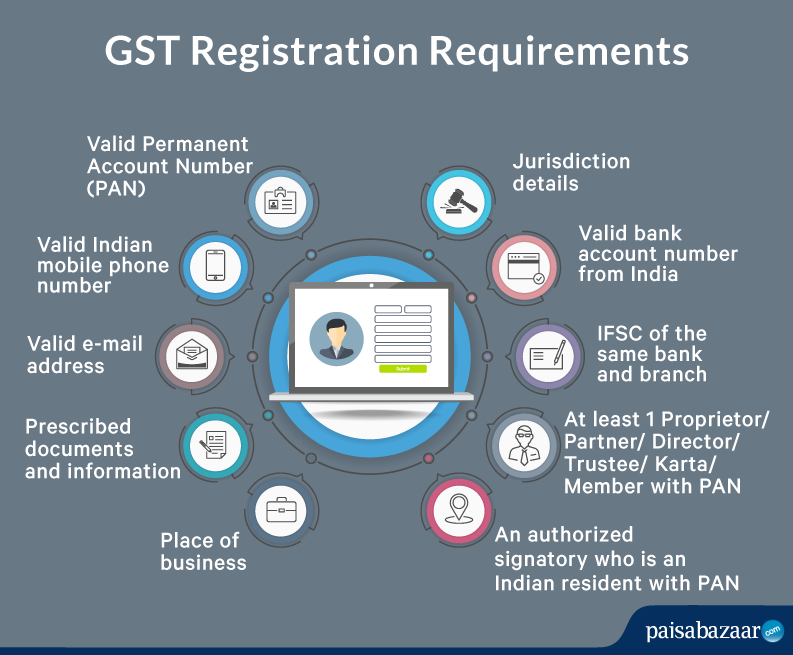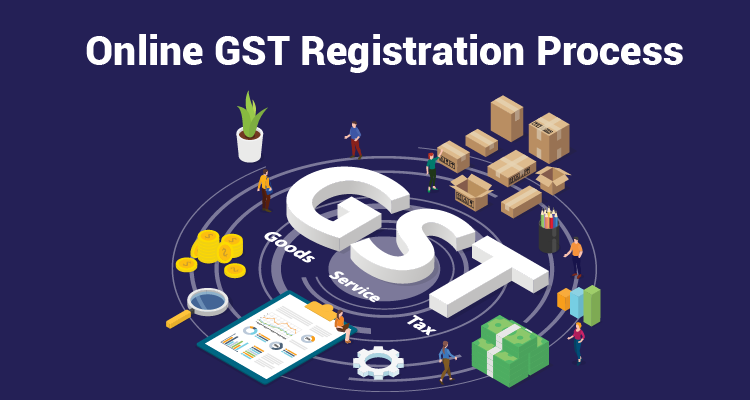Why Choose CFO Account & Services for GST Registration in Singapore: Top Advantages Explained
Why Choose CFO Account & Services for GST Registration in Singapore: Top Advantages Explained
Blog Article
Browsing the Intricacies of GST Enrollment: A Comprehensive Guide for Entrepreneur
Browsing the intricacies of GST registration can be a challenging job for many company owner, as it includes a myriad of guidelines, guidelines, and refines that have to be followed. With the ever-evolving landscape of tax obligation laws, guaranteeing compliance and comprehending the complexities of GST registration is critical for the seamless operation of any company. From determining eligibility and collecting the needed documentation to maximizing procedures for optimal efficiency, this detailed overview intends to give local business owner with the expertise and devices needed to browse the intricacies of GST enrollment successfully.
Qualification for GST Registration
Company owner need to satisfy particular criteria to identify their qualification for GST enrollment. In basic, businesses with an annual turn over exceeding a particular limit are called for to sign up for Product and Services Tax (GST) This threshold varies by nation, however it is necessary for entrepreneurs to stay informed regarding the certain regulations in their territory. Furthermore, organizations associated with interstate materials, e-commerce, or the stipulation of certain defined services and items may also be mandated to register for GST, no matter of their turn over.
Furthermore, businesses that are registered under any type of previous tax regimen, such as Barrel or service tax, are commonly called for to transition to GST enrollment. By sticking to the needed requirements, businesses can efficiently navigate the intricacies of GST enrollment and operate legitimately within the tax obligation framework.
Files Required for Enrollment
To finish the GST enrollment process, organizations require to gather and submit a comprehensive collection of papers. The key papers required for GST enrollment generally consist of proof of service registration or incorporation such as the Certificate of Unification, partnership action, or any various other enrollment certificate. Furthermore, businesses must supply identification and address proof of the partners or promoters, which can be in the kind of Aadhar card, FRYING PAN key, chauffeur, or card's permit. Financial documents such as bank declarations, evidence of business like rental agreement or electrical energy expense, and licensed signatory information are additionally necessary for the registration process.
Additionally, certain documents connected to the nature of the service, such as a listing of products or services provided, HSN codes for items, and cavity codes for services, might be called for - Why choose CFO Account & Services for GST registration in Singapore. It is critical for organizations to make certain that all records sent are precise, updated, and in the prescribed format to stay clear of any type of delays or complications in the GST enrollment procedure
Refine of GST Enrollment
Having assembled the requisite documents, companies proceed to launch the GST registration procedure by engaging with the on-line website marked for registration. This online website is the Goods and Services Tax Obligation check my source Network (GSTN) portal, which functions as the main platform for all GST-related tasks in India. Upon accessing the website, services are required to complete the GST enrollment form with precise information regarding their business activities, turn over, and other appropriate information.
As soon as the kind is finished and sent on the portal, the GSTN verifies the details offered by the service. Complying with successful verification, a GST enrollment certification is issued to the company entity.
It is necessary for businesses to guarantee that the info supplied throughout the GST enrollment procedure is precise and as much as date to stay clear of any kind of possible concerns or hold-ups in getting the GST enrollment certification.
Recognizing GST Conformity

Organizations require to be knowledgeable about the numerous GST conformity demands based upon their turnover, nature of services or products, and the states in which they operate. It is essential to stay upgraded on any modifications in GST laws and regulations to avoid any non-compliance concerns.
Non-compliance with GST guidelines can lead to significant fines, penalties, and also legal repercussions. Services need to invest time and sources in informing themselves and their staff on GST conformity. Looking for professional aid from tax obligation advisors or consultants can likewise help in browsing the complexities of GST compliance and making certain that services operate within the lawful structure.

Tips for Optimizing Business Operations
For boosted efficiency and performance in business procedures, strategic preparation and structured processes are crucial components. One pointer for optimizing organization operations is to take advantage of modern technology efficiently.
An additional essential element is focusing on tasks based on my review here their relevance and deadlines. By creating a clear pecking order of jobs and setting reasonable timelines, organizations can guarantee that vital activities are completed in a timely manner. Promoting a society of open interaction and cooperation among team members can lead to enhanced effectiveness and development.

Conclusion
In conclusion, navigating the complexities of GST registration requires a clear understanding of eligibility requirements, needed records, enrollment procedures, and conformity needs. By sticking to these standards and enhancing service procedures, local business owner can make sure smooth procedures and compliance with the GST policies. It is vital for services to stay educated and updated on GST regulations to avoid any fines or legal issues.
The key documents needed for GST enrollment normally consist of proof of company registration or unification such as the Certification of Consolidation, partnership act, or any type of other registration certificate.Having actually put together the requisite documentation, services continue to start the GST registration process by involving with link the on the internet portal marked for enrollment. Upon accessing the portal, organizations are needed to fill out the GST enrollment type with accurate information regarding their business tasks, turnover, and various other appropriate details.
In order to preserve adherence to GST policies and stay clear of charges, businesses have to prioritize understanding GST conformity. By adhering to these standards and optimizing service operations, organization owners can make certain smooth operations and conformity with the GST policies.
Report this page